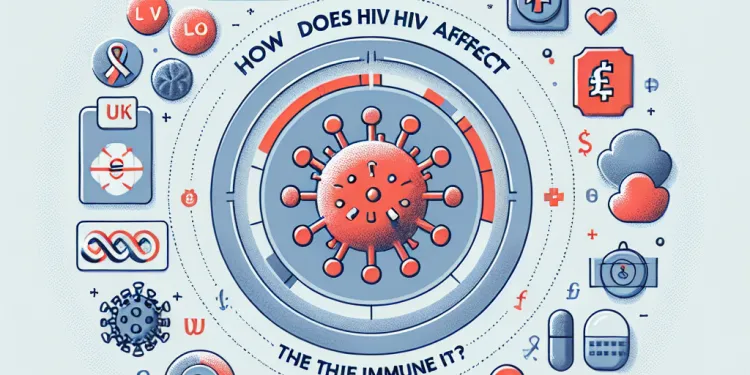
Find Help
More Items From Ergsy search
-
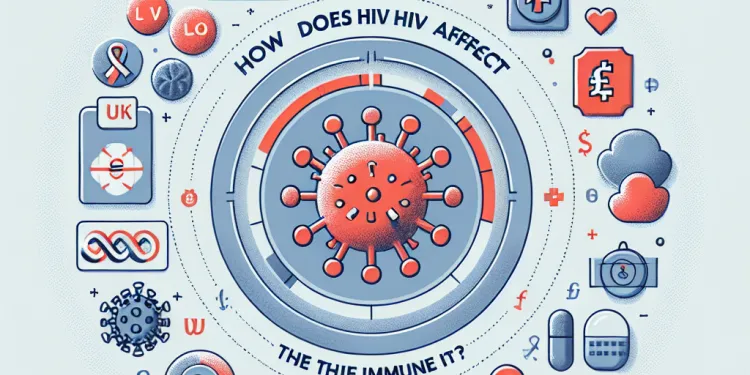
How does HIV affect the immune system?
Relevance: 100%
-

What is HIV / AIDS?
Relevance: 64%
-

Is there a connection between cortisol and the immune system?
Relevance: 63%
-

What is HIV?
Relevance: 61%
-
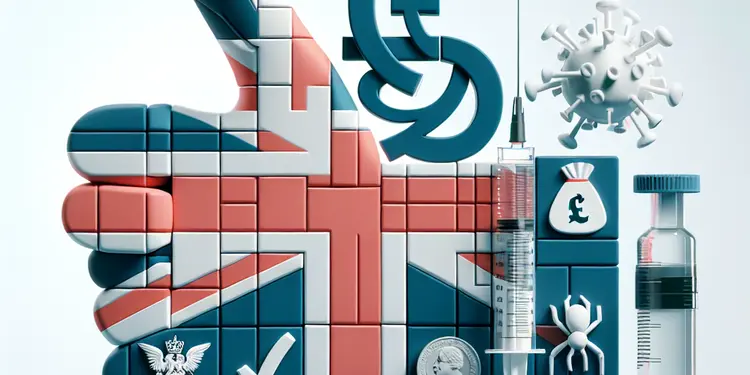
Are there vaccination recommendations for people with compromised immune systems?
Relevance: 60%
-

What is the difference between HIV and AIDS?
Relevance: 58%
-

Are there vaccines available for HIV?
Relevance: 57%
-

Can using sunbeds boost my immune system?
Relevance: 57%
-

HIV and pregnancy | NHS
Relevance: 57%
-
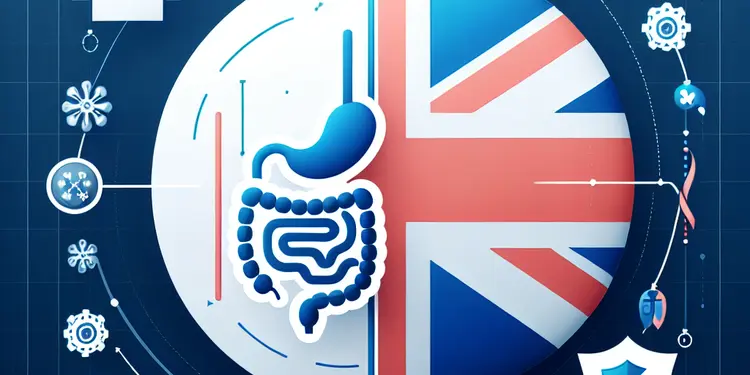
Can gut health influence the immune system in aging individuals?
Relevance: 54%
-
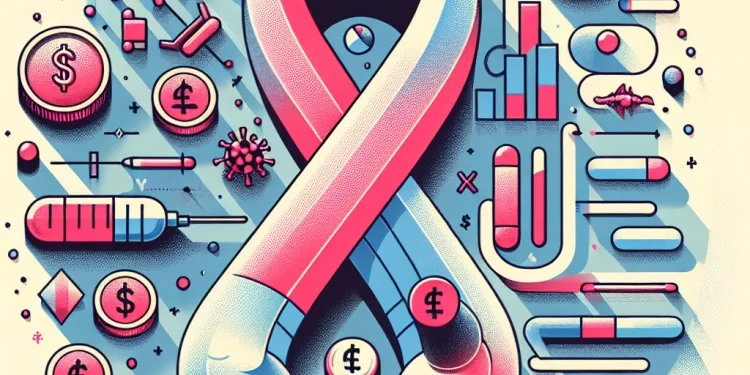
How is HIV transmitted?
Relevance: 52%
-
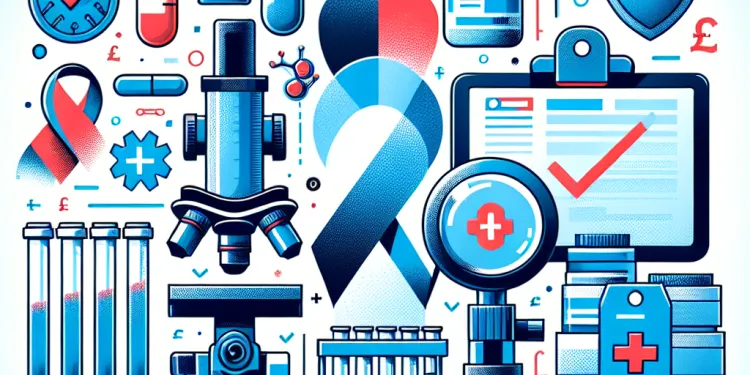
How is HIV diagnosed?
Relevance: 50%
-

HIV - My Story - Florence | NHS
Relevance: 49%
-

Can HIV be transmitted through insect bites?
Relevance: 49%
-
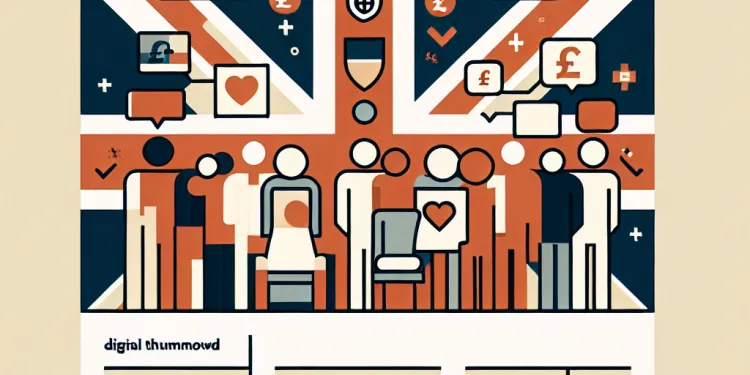
Can people with HIV lead normal lives?
Relevance: 48%
-
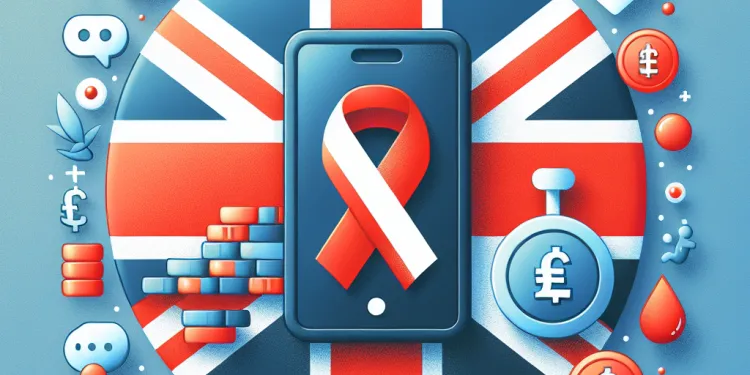
Is HIV only a concern for certain groups of people?
Relevance: 48%
-

Sexual Health - HIV Testing
Relevance: 46%
-
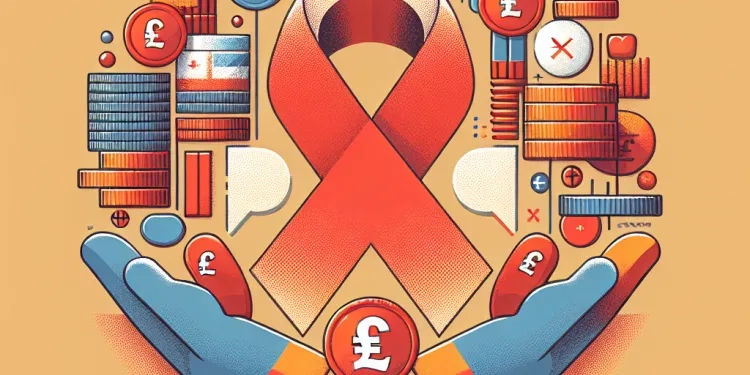
How can HIV be prevented?
Relevance: 46%
-
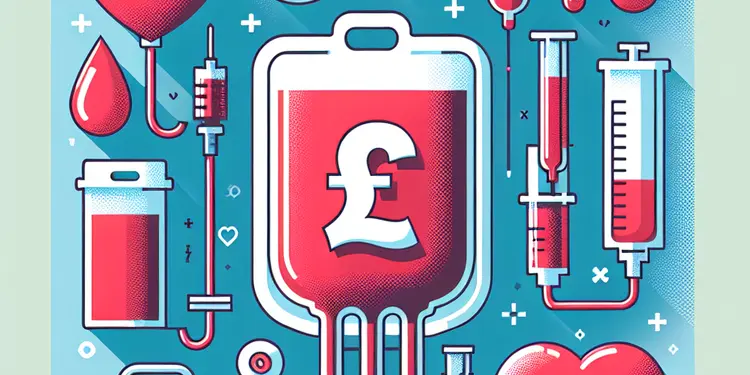
Can HIV be transmitted through blood transfusions?
Relevance: 46%
-
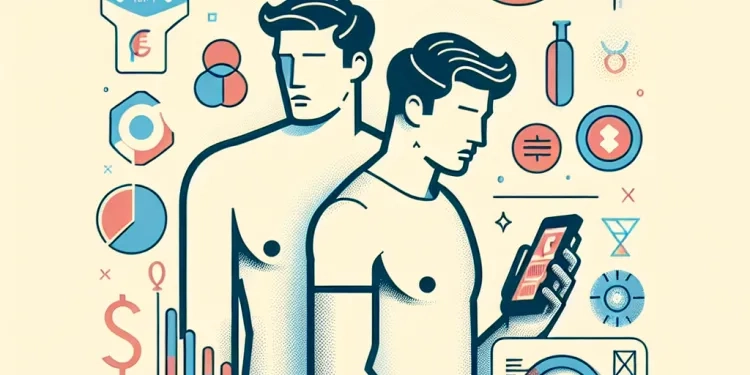
How often should someone get tested for HIV?
Relevance: 44%
-

What is herd immunity?
Relevance: 43%
-
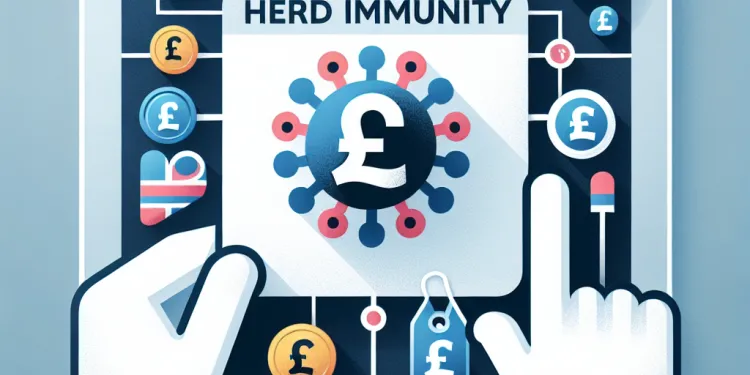
What is herd immunity?
Relevance: 43%
-

What role does stigma play in the HIV epidemic?
Relevance: 42%
-
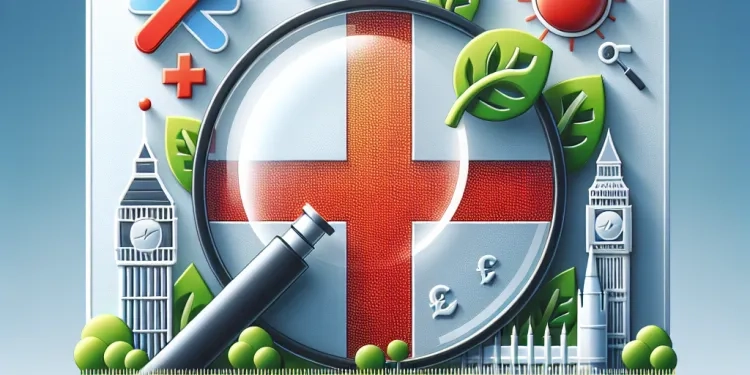
Can HIV be cured?
Relevance: 42%
-
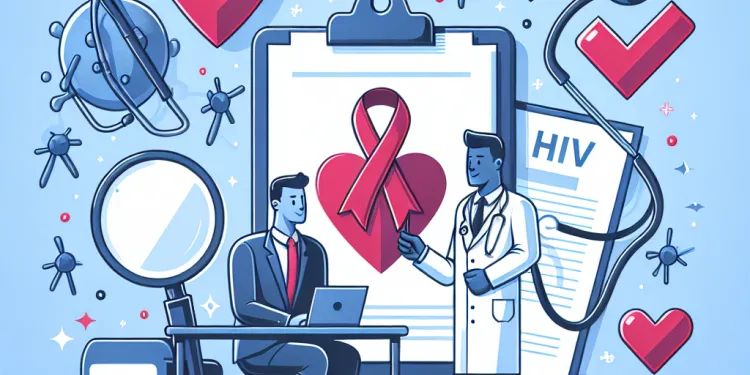
What are the symptoms of HIV?
Relevance: 42%
-
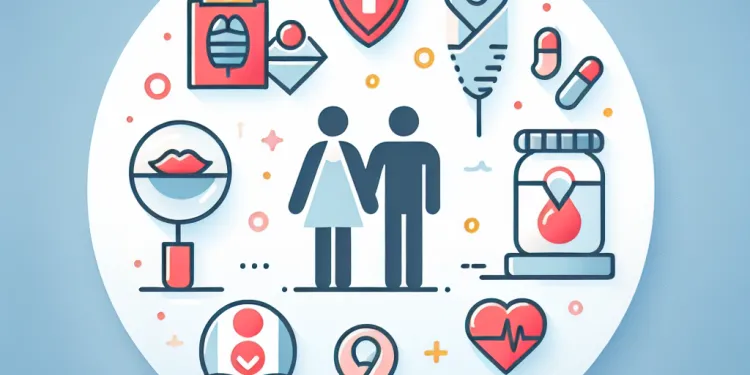
Is it safe for a partner of someone with HIV to have children?
Relevance: 41%
-

What are systemic medications for psoriasis?
Relevance: 37%
-

What is AIDS?
Relevance: 36%
-
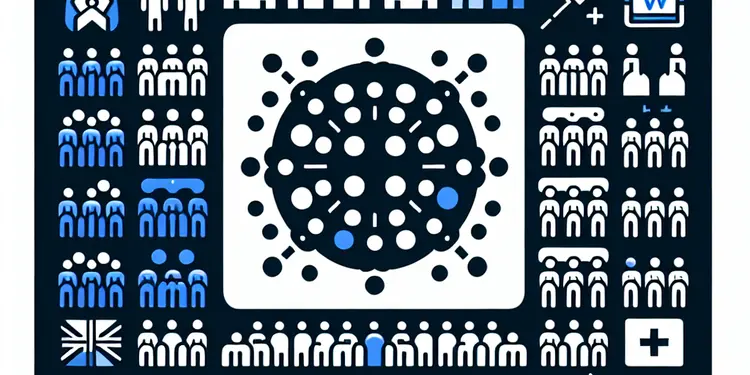
What is herd immunity and how does it relate to measles?
Relevance: 33%
-
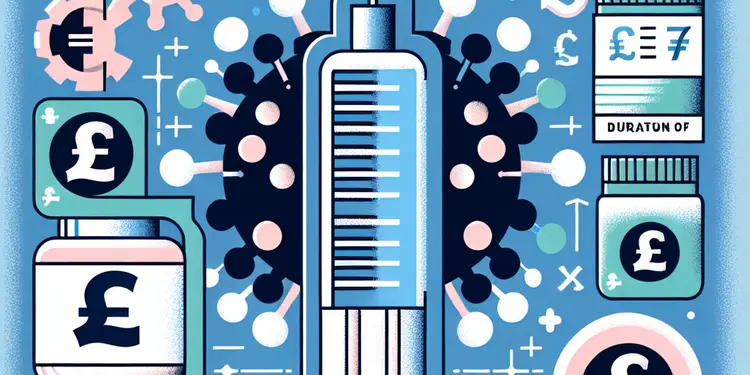
How long does immunity last after getting the COVID jab?
Relevance: 32%
-

What is antiretroviral therapy (ART)?
Relevance: 31%
-
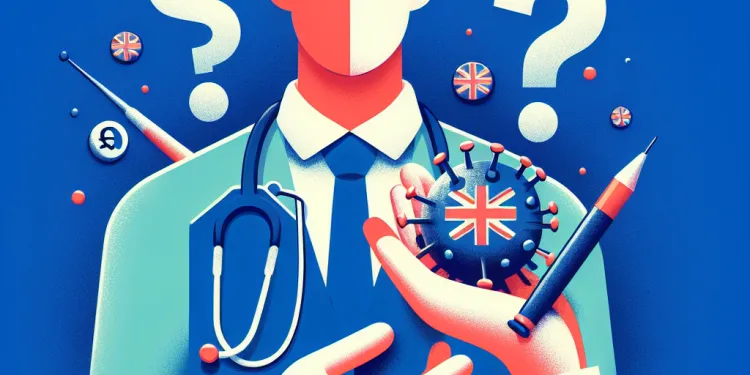
What causes shingles?
Relevance: 30%
-

Is the penalty point system subject to change?
Relevance: 28%
-
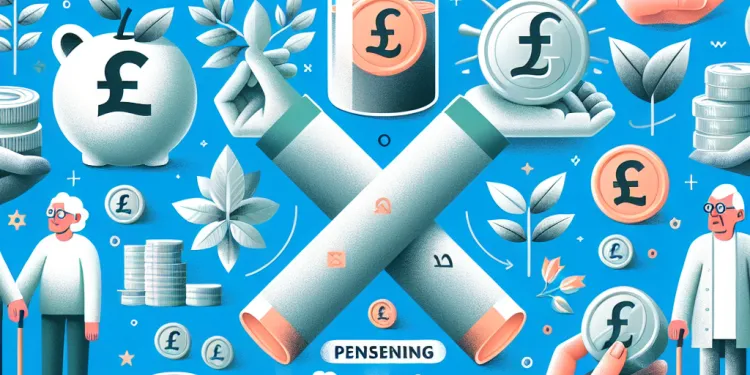
What is the impact on pensioners if a pension system collapses?
Relevance: 26%
-
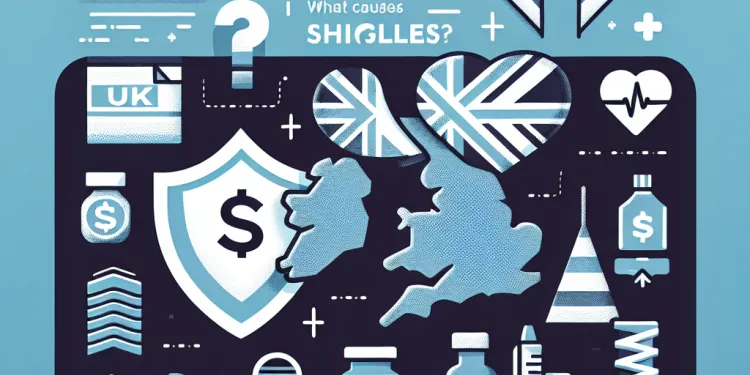
What causes shingles?
Relevance: 26%
-

What is the HMRC's new penalty point system?
Relevance: 26%
-
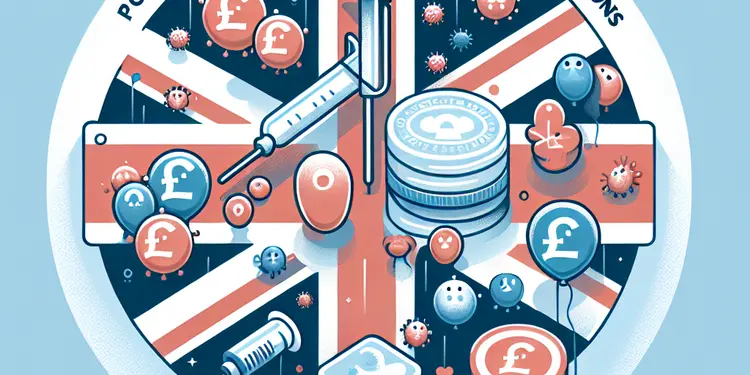
What populations are at higher risk for E. coli infections?
Relevance: 26%
-

What is HMRC new penalty point system?
Relevance: 26%
-

Who is at risk of developing shingles?
Relevance: 26%
-

What is the grace period for the penalty point system?
Relevance: 25%
Understanding HIV and the Immune System
Human Immunodeficiency Virus (HIV) is a virus that specifically targets the human immune system, progressively impairing its ability to fight infections and diseases. This can eventually lead to Acquired Immunodeficiency Syndrome (AIDS) if left untreated. Understanding how HIV affects the immune system is essential in comprehending the progression of the disease and the importance of early intervention and treatment.
HIV's Target: CD4 Cells
The primary target of HIV is the CD4 cell, also known as a T-helper cell. These cells play a crucial role in orchestrating the immune response. CD4 cells communicate with other immune cells, such as B cells and macrophages, to mount an effective defense against pathogens. Unfortunately, HIV recognizes and binds to specific receptors on the surface of CD4 cells, using them to enter and replicate inside these cells.
Destruction of CD4 Cells
Once inside the CD4 cell, HIV integrates its own genetic material into the host cell’s DNA, commandeering the cell’s internal machinery to produce new copies of the virus. This process inevitably damages and destroys the host CD4 cell, drastically reducing their numbers over time. The continued depletion of CD4 cells weakens the immune system and impairs its ability to coordinate an immune response against infections.
Impact on the Immune Response
As HIV infection progresses, the reduction in CD4 cell counts leads to a weakened immune system. With fewer CD4 cells, the body becomes increasingly vulnerable to opportunistic infections and certain types of cancers that a healthy immune system would ordinarily be able to control. Conditions such as tuberculosis, certain types of pneumonia, and Kaposi's sarcoma can develop, increasing morbidity and mortality among those with untreated HIV.
The Importance of Treatment
Antiretroviral therapy (ART) is vital in managing HIV infection. Although there is no cure, ART effectively suppresses viral replication and helps to maintain or restore CD4 cell counts. This stabilisation of the immune system helps prevent the progression to AIDS and allows individuals living with HIV to lead healthier lives.
Conclusion
HIV's impact on the immune system is profound, primarily through its targeted attack on CD4 cells. This leads to a gradual breakdown of the immune defence mechanisms. Understanding this process highlights the critical importance of early detection and continuous treatment with ART to manage the disease effectively and prevent its progression to AIDS, showcasing the significant advances in medical treatment and patient care.
Understanding HIV and the Immune System
HIV is a virus that attacks the body's defense system. This system helps protect us from getting sick. If HIV is not treated, it can cause a bad sickness called AIDS. It is important to learn how HIV affects our body's defense so we can treat it early.
HIV's Target: CD4 Cells
HIV attacks special cells called CD4 cells. These cells help the body fight germs and sickness. CD4 cells talk to other cells to make sure the body stays healthy. HIV finds these cells and enters them to make more of the virus.
Destruction of CD4 Cells
When HIV is inside a CD4 cell, it uses the cell to make copies of itself. This process damages the CD4 cell and kills it. Over time, there are fewer CD4 cells, and the body becomes weak in fighting infections.
Impact on the Immune Response
With fewer CD4 cells, the body's defense system gets weaker. This means that people with HIV can get sick more easily with infections and some cancers. These are illnesses like certain lung infections and skin cancer.
The Importance of Treatment
There is a treatment called ART that helps manage HIV. ART cannot cure HIV, but it stops the virus from making copies. This helps keep CD4 cells from being destroyed. ART helps people with HIV stay healthier and live longer.
Conclusion
HIV harms the body's defense by attacking CD4 cells. This weakens the body's ability to fight sickness. Knowing how HIV works reminds us to start treatment early and stick with it. This helps people with HIV lead healthy lives and prevents them from getting AIDS.
Frequently Asked Questions
What is HIV?
HIV, or human immunodeficiency virus, is a virus that attacks the body's immune system.
How does HIV affect the immune system?
HIV targets and destroys CD4 cells, which are crucial for the immune system to fight off infections and diseases.
What are CD4 cells?
CD4 cells, also known as T-helper cells, are a type of white blood cell that plays a significant role in protecting the body from infections.
Why are CD4 cells important?
CD4 cells help activate the immune response, signaling other cells in the immune system to attack and destroy pathogens.
How does HIV damage CD4 cells?
HIV enters CD4 cells and uses them to replicate, eventually destroying them in the process.
What happens when CD4 cell levels drop?
When CD4 cell levels drop, the immune system becomes weakened and less able to fight infections and diseases.
What is the role of CD4 count in HIV infection?
CD4 count is a key marker used to assess the health of the immune system in people living with HIV.
How does HIV progress in the body?
HIV progresses through several stages: acute infection, clinical latency, and AIDS, where the immune system becomes severely compromised.
What is acute HIV infection?
Acute HIV infection is the initial stage of HIV, characterized by flu-like symptoms and a rapid decline in CD4 cells.
What is clinical latency in HIV?
Clinical latency is a stage where HIV is active but reproduces at lower levels, and individuals may not show symptoms.
What is AIDS?
AIDS, or acquired immunodeficiency syndrome, is the final stage of HIV infection, where the immune system is severely damaged.
How does HIV increase risk of infections?
With a weakened immune system, the body is more susceptible to opportunistic infections and certain cancers.
What are opportunistic infections?
Opportunistic infections are infections that occur more frequently and are more severe in individuals with weakened immune systems.
Can HIV be cured?
Currently, there is no cure for HIV, but it can be managed with antiretroviral therapy (ART).
How does antiretroviral therapy work?
ART works by reducing the viral load of HIV in the body, helping to preserve the immune system and prevent disease progression.
What is viral load?
Viral load refers to the amount of HIV present in the blood. Lower viral loads indicate better management of the virus.
How can HIV transmission be prevented?
HIV transmission can be prevented through safe sex practices, regular testing, and the use of pre-exposure prophylaxis (PrEP).
What is pre-exposure prophylaxis (PrEP)?
PrEP is a medication taken by HIV-negative individuals to reduce the risk of contracting HIV.
How important is regular HIV testing?
Regular HIV testing is crucial for early detection and management, helping to maintain a healthy immune system.
What lifestyle changes can help manage HIV effectively?
Maintaining a healthy diet, exercising regularly, avoiding drugs and alcohol, and adhering to ART can support immune function in people with HIV.
What is HIV?
HIV is a virus. A virus is a tiny germ that can make you sick.
HIV can make your body weak and hard to fight off other sicknesses.
If you have questions, ask a doctor or a nurse. They can help you understand more.
You can also look at books or videos that explain HIV in a simple way.
HIV is a virus. Its full name is human immunodeficiency virus. HIV attacks the body's immune system. The immune system helps us fight germs and stay healthy.
If you want help reading, you can:
- Ask someone to read with you.
- Listen to an audio version.
- Use a dictionary to understand new words.
What does HIV do to the body's defenses?
HIV is a germ that makes it hard for the body to fight sickness. It attacks special cells called helper T-cells or CD4 cells.
When HIV attacks these cells, it weakens the body's defenses against other germs. This means it is easier for the person to get sick.
Someone with HIV needs to see a doctor to get medicine. This helps keep the body strong.
Reading tools can help if the text feels difficult. Software that reads aloud or larger text can make reading easier.
HIV is a virus that hurts special cells called CD4 cells. These cells are very important because they help our body fight germs and sickness.
What are CD4 cells?
CD4 cells are a type of cell in your blood. They help your body fight germs and stay healthy. You can think of them like little soldiers that protect you from getting sick.
If you want to learn more about CD4 cells, you can watch videos or use pictures to help understand better.
CD4 cells are a kind of white blood cell. They are also called T-helper cells. They help keep us safe from getting sick.
Why are CD4 cells important?
CD4 cells are a type of white blood cell. They help your body fight infections.
CD4 cells tell other cells when to attack germs and viruses.
Without CD4 cells, your body might not fight off sickness well.
If you need help understanding, you can:
- Ask a teacher or adult to explain.
- Use picture-based guides to learn more about the body and cells.
- Watch videos for kids about how the body works.
CD4 cells are like team leaders. They tell the body's defense system to wake up and fight germs.
How does HIV harm CD4 cells?
HIV is a virus that makes it hard for the body to fight infections.
In your body, there are special cells called CD4 cells. These cells help protect you from getting sick.
HIV attacks these CD4 cells and hurts them. When CD4 cells get hurt, your body can't fight germs as well.
Here are some tips to understand this better:
- Use pictures or drawings to see how HIV and CD4 cells look.
- Watch videos that explain how HIV works.
- Talk to someone who can answer questions if you are confused.
HIV gets inside CD4 cells. It makes copies of itself and breaks the CD4 cells.
What happens when CD4 cells go down?
CD4 cells are important for fighting germs. They help keep our bodies healthy. If CD4 cells get low, your body can't fight germs as well. You might get sick more easily.
To help understand more, you can:
- Use picture books or videos about health.
- Ask someone to explain with simple words.
- Play health games that teach about the body.
When the number of CD4 cells goes down, the body's defense system gets weaker and cannot fight off germs and sicknesses as well.
What does CD4 count do in HIV?
CD4 cells are like soldiers in your body. They help fight germs and sickness.
HIV is a virus that attacks these CD4 cells. When there are fewer CD4 cells, the body can't fight illness as well.
The CD4 count is a test. It tells us how many CD4 cells are in the blood. This helps doctors know how strong the body's defenses are.
If CD4 count is low, doctors might give medicine to help.
To understand more, you can use pictures or videos. Talking to a doctor or helper can also make it clearer.
CD4 count shows how healthy your body's defense system is if you have HIV.
What happens to the body when someone has HIV?
HIV is a tiny germ that can make you sick. When HIV gets into your body, it tries to take over your defense system, which is like your body's guard against getting sick.
At first, you might feel like you have the flu. But after that, even if you feel okay, the HIV germs are still in your body.
HIV can slowly weaken your body's defense system. This means you can get sick more easily.
It is important for people with HIV to go to the doctor often. The doctor can give medicine to help keep the HIV germs under control. This medicine helps you stay healthy.
Using special tools like picture stories or setting reminders to take medicine can help people with HIV understand and remember what to do.
When someone has HIV, it goes through three steps. First, is the beginning when they just get the virus. Next, is the quiet time when the virus is in the body but not causing too many problems. Then, if not treated, it leads to AIDS, which makes it really hard for the body to fight off any germs.
To help understand this, you can use pictures or talk to someone who can explain it simply.
What is acute HIV infection?
Acute HIV infection is when a person first gets the HIV virus. It's the early stage of the illness.
Here are some things to know:
- It happens soon after someone is exposed to HIV.
- A person might feel like they have the flu.
- They might have fever, sore throat, or a rash.
- It is important to see a doctor for help.
Ways to help understand:
- Ask someone if you need help reading.
- Use tools like text-to-speech to listen to the words.
- Look at pictures or videos that explain HIV.
Acute HIV infection is the first stage of HIV. It feels like having the flu. It can make the CD4 cells in your body go down very fast.
What is clinical latency in HIV?
When someone has HIV, there is a time when they don't feel sick. This time is called "clinical latency."
During this time, the virus is still in the body, but it does not make the person feel bad.
You can use pictures or videos to help understand this better.
Talking to a doctor or a nurse can also help you learn more.
Clinical latency is a time when HIV is in the body but is making fewer copies of itself. People might not feel sick or show signs of the virus during this time.
What is AIDS?
AIDS is a sickness. It makes your body weak. It is hard for your body to fight other sicknesses when you have AIDS.
AIDS comes from a virus called HIV. The virus attacks your body's defense system. This system is called the immune system. When the immune system is weak, you can get sick more easily.
If you want to learn more, you can:
- Ask a doctor or nurse.
- Look for books about AIDS at the library.
- Use the internet with help from an adult.
Remember, talking to someone you trust can help you understand better.
AIDS is a sickness you get from another sickness called HIV. It happens when your body’s defense, called the immune system, gets very weak.
How does HIV make it easier to get sick?
HIV is a virus that can make you sick.
When you have HIV, it can stop your body from fighting other germs.
This makes it easier for you to catch colds and other illnesses.
If you find it hard to read, you can:
- ask someone to read it to you
- use a computer or phone to read the words out loud
- click on pictures that explain things
When the body's defense system is weak, it is easier to get infections and some types of cancer.
What are opportunistic infections?
Opportunistic infections are illnesses that happen when the body's immune system is weak. The immune system is what helps the body fight germs and stay healthy.
When the immune system is strong, it can fight off germs easily. But if it is weak, germs like bacteria and viruses can make a person sick more easily.
Here are some tips to help understand this:
- Think of the immune system as the body's defense team. It protects the body from getting sick.
- If the defense team is strong, germs have a hard time getting in. But if it is weak, germs can slip through and cause sickness.
- People with diseases like HIV/AIDS often have weak immune systems, so they need to be extra careful.
If you find reading difficult, you can:
- Ask someone to read with you.
- Use tools like text-to-speech apps to listen to the text.
- Look up pictures or videos on the internet to better understand.
Opportunistic infections are sicknesses. These sicknesses happen more often and are worse in people who don’t have strong bodies to fight germs.
Can people get better from HIV?
No, people cannot get completely better from HIV yet. But there is medicine that helps. This medicine is called ART. It helps people with HIV stay healthy.
The medicine lets people live a long life. It also stops HIV from spreading to others. It's important for people with HIV to take their medicine every day.
If you have questions, it's good to talk to a doctor or nurse. They can help you understand more.
Right now, there is no way to completely get rid of HIV. But people can still live healthy lives by taking special medicine called ART.
How do medicines for HIV work?
These medicines are called antiretroviral therapy.
They help people with HIV live longer and feel better.
They stop the virus from making copies of itself. This keeps the virus from spreading.
To understand the medicine, you can:
- Talk to a doctor or nurse.
- Watch videos about HIV medicines.
- Use picture cards to see how they work.
- Ask questions if you are confused.
These steps can help you learn more.
ART is medicine that helps fight HIV. It makes the amount of virus in the body very small. This helps keep the body's defense system strong and stops the person from getting sick.
What is viral load?
Viral load is how much virus is in your body. It tells you how many germs are in your blood. If you are sick, doctors can check your viral load to see how much virus is there.
Tips to understand better:
- Ask someone to explain the words you don’t know.
- Use pictures or videos to learn more.
- Break down big ideas into smaller parts.
Viral load means how much HIV is in the blood. When there is less HIV, it means the virus is being controlled better.
How can we stop HIV from spreading?
HIV is a virus that can make you very sick. There are ways to stop it from spreading from one person to another.
- Use a condom: Wearing a condom during sex helps keep the virus from spreading.
- Get tested: Going to the doctor to check if you have HIV is important. Knowing your status helps you stay healthy and safe.
- Don't share needles: Using your own clean needle, especially for medicine or drugs, stops the virus from spreading.
- Medicine: Taking special medicine can help stop the virus from spreading if you have HIV.
If you want more help, talk to a doctor or nurse. They can give you more tips and information.
You can stop HIV from spreading by:
- Having safe sex. This means using condoms.
- Getting tested often to know your HIV status.
- Taking a medicine called PrEP if you are at risk.
If reading is hard, you can ask someone to read it to you or use tools on your phone that speak the words out loud.
What is PrEP?
PrEP is a medicine that helps stop you from getting HIV.
You take it before you come into contact with the virus. It's like a shield that protects you.
If you take PrEP every day, it works very well.
Ask a doctor or nurse if PrEP is right for you.
You can use things like calendars or apps to remind you to take your medicine every day.
PrEP is a medicine. People who do not have HIV take it to help stop them from getting HIV.
Why is it important to get tested for HIV regularly?
Getting tested for HIV regularly is very important. It helps you stay healthy. If you know you have HIV, you can get the right treatment.
Regular testing can catch HIV early. This means you can start medicine sooner and stay healthier for longer.
To help remember to get tested, you can:
- Set reminders on your phone.
- Ask someone you trust to remind you.
- Write it on a calendar.
If you have questions, talk to a doctor or nurse. They can help you understand more.
It is important to get tested for HIV often. This helps find and manage the virus early. It can also help you stay healthy.
What changes can help you live well with HIV?
If you have HIV, there are things you can do to feel better and stay healthy:
- Take your medicine every day. Your doctor will give you special medicine for HIV.
- Eat good food. Try to eat lots of fruits, vegetables, and whole grains.
- Exercise often. Moving your body helps keep you strong.
- Get lots of sleep. Sleep helps your body heal and stay well.
- Don't smoke or use drugs. They are bad for your health.
- Talk to someone you trust. Sharing your feelings can help you feel better.
If it is hard for you to read or remember this, you can:
- Ask someone to read it to you.
- Use a voice recorder to keep track of your medicine schedule.
- Draw pictures to remember what to do.
To help your body stay strong if you have HIV, you can:
- Eat healthy food.
- Exercise often.
- Stay away from drugs and alcohol.
- Take your HIV medicine on time.
These things can help keep your immune system working well.
Useful Links
This website offers general information and is not a substitute for professional advice.
Always seek guidance from qualified professionals.
If you have any medical concerns or need urgent help, contact a healthcare professional or emergency services immediately.
Some of this content was generated with AI assistance. We’ve done our best to keep it accurate, helpful, and human-friendly.
- Ergsy carfully checks the information in the videos we provide here.
- Videos shown by Youtube after a video has completed, have NOT been reviewed by ERGSY.
- To view, click the arrow in centre of video.
- Most of the videos you find here will have subtitles and/or closed captions available.
- You may need to turn these on, and choose your preferred language.
- Go to the video you'd like to watch.
- If closed captions (CC) are available, settings will be visible on the bottom right of the video player.
- To turn on Captions, click settings .
- To turn off Captions, click settings again.
More Items From Ergsy search
-

How does HIV affect the immune system?
Relevance: 100%
-

What is HIV / AIDS?
Relevance: 64%
-

Is there a connection between cortisol and the immune system?
Relevance: 63%
-

What is HIV?
Relevance: 61%
-

Are there vaccination recommendations for people with compromised immune systems?
Relevance: 60%
-

What is the difference between HIV and AIDS?
Relevance: 58%
-

Are there vaccines available for HIV?
Relevance: 57%
-

Can using sunbeds boost my immune system?
Relevance: 57%
-

HIV and pregnancy | NHS
Relevance: 57%
-

Can gut health influence the immune system in aging individuals?
Relevance: 54%
-

How is HIV transmitted?
Relevance: 52%
-

How is HIV diagnosed?
Relevance: 50%
-

HIV - My Story - Florence | NHS
Relevance: 49%
-

Can HIV be transmitted through insect bites?
Relevance: 49%
-

Can people with HIV lead normal lives?
Relevance: 48%
-

Is HIV only a concern for certain groups of people?
Relevance: 48%
-

Sexual Health - HIV Testing
Relevance: 46%
-

How can HIV be prevented?
Relevance: 46%
-

Can HIV be transmitted through blood transfusions?
Relevance: 46%
-

How often should someone get tested for HIV?
Relevance: 44%
-

What is herd immunity?
Relevance: 43%
-

What is herd immunity?
Relevance: 43%
-

What role does stigma play in the HIV epidemic?
Relevance: 42%
-

Can HIV be cured?
Relevance: 42%
-

What are the symptoms of HIV?
Relevance: 42%
-

Is it safe for a partner of someone with HIV to have children?
Relevance: 41%
-

What are systemic medications for psoriasis?
Relevance: 37%
-

What is AIDS?
Relevance: 36%
-

What is herd immunity and how does it relate to measles?
Relevance: 33%
-

How long does immunity last after getting the COVID jab?
Relevance: 32%
-

What is antiretroviral therapy (ART)?
Relevance: 31%
-

What causes shingles?
Relevance: 30%
-

Is the penalty point system subject to change?
Relevance: 28%
-

What is the impact on pensioners if a pension system collapses?
Relevance: 26%
-

What causes shingles?
Relevance: 26%
-

What is the HMRC's new penalty point system?
Relevance: 26%
-

What populations are at higher risk for E. coli infections?
Relevance: 26%
-

What is HMRC new penalty point system?
Relevance: 26%
-

Who is at risk of developing shingles?
Relevance: 26%
-

What is the grace period for the penalty point system?
Relevance: 25%


